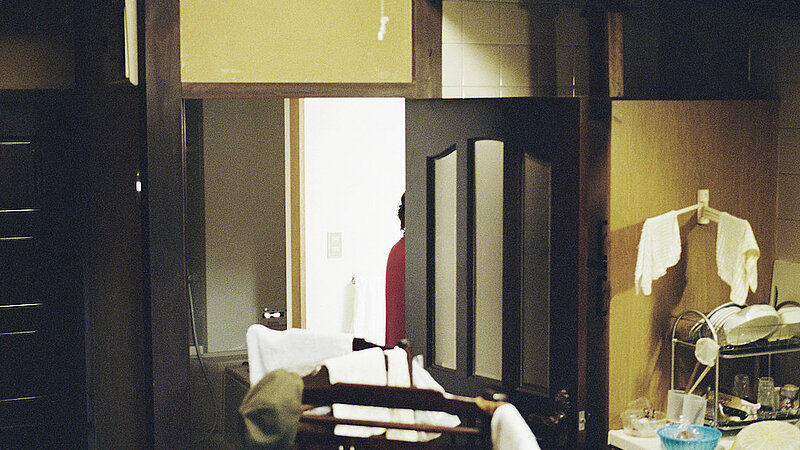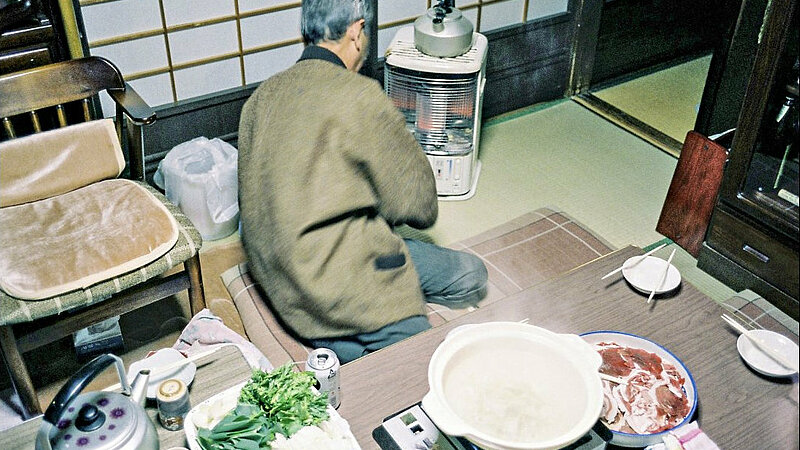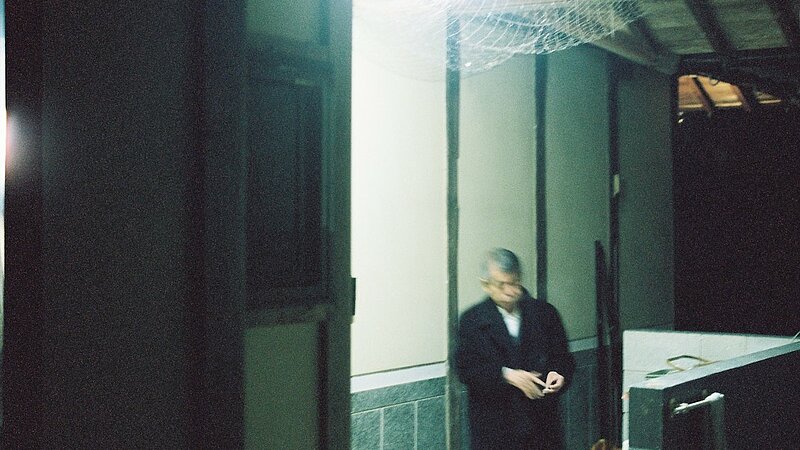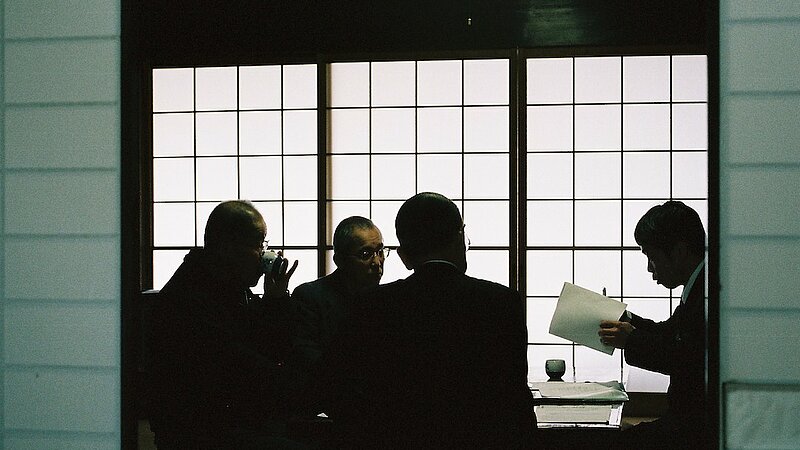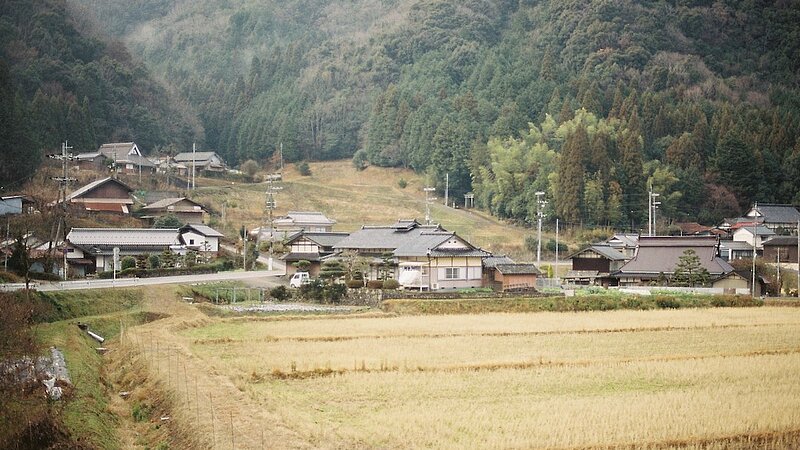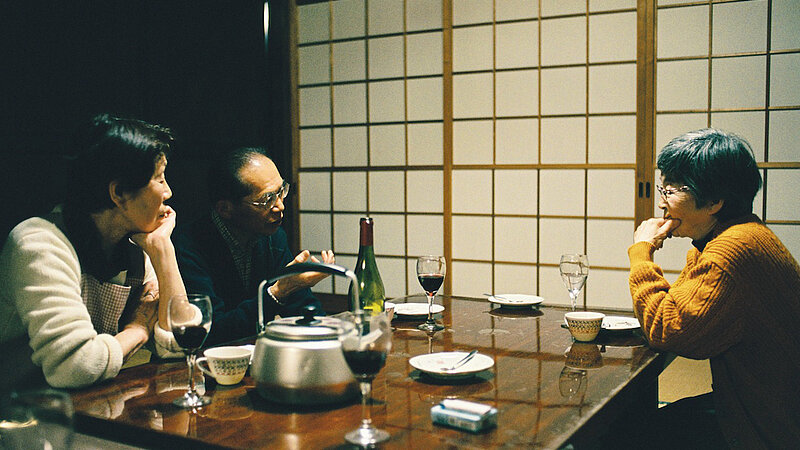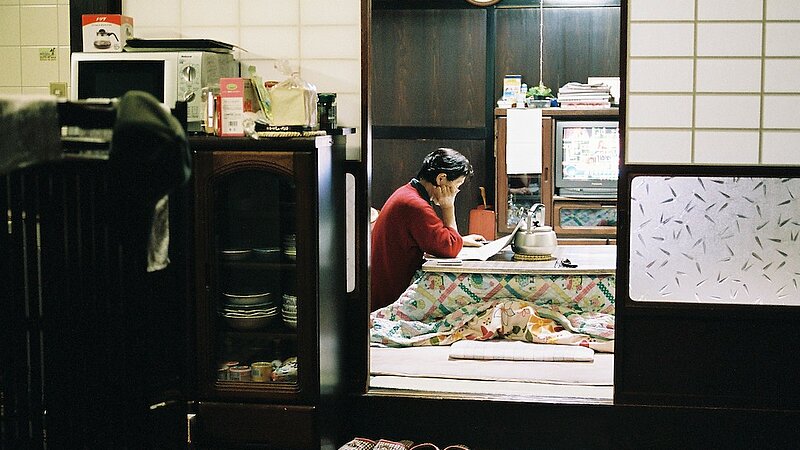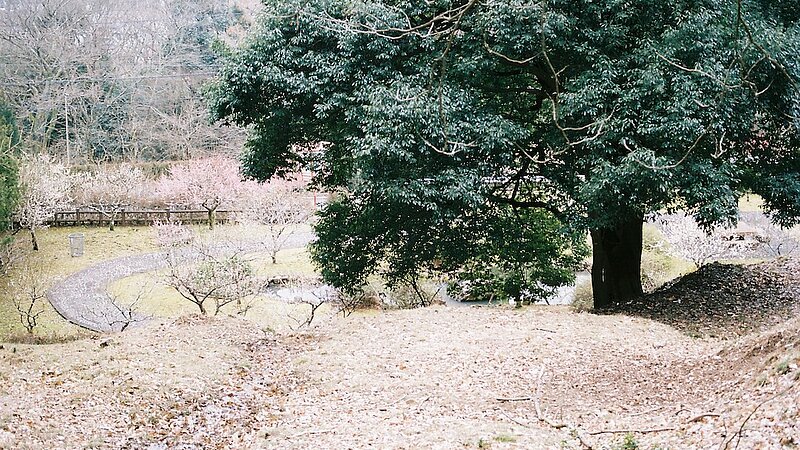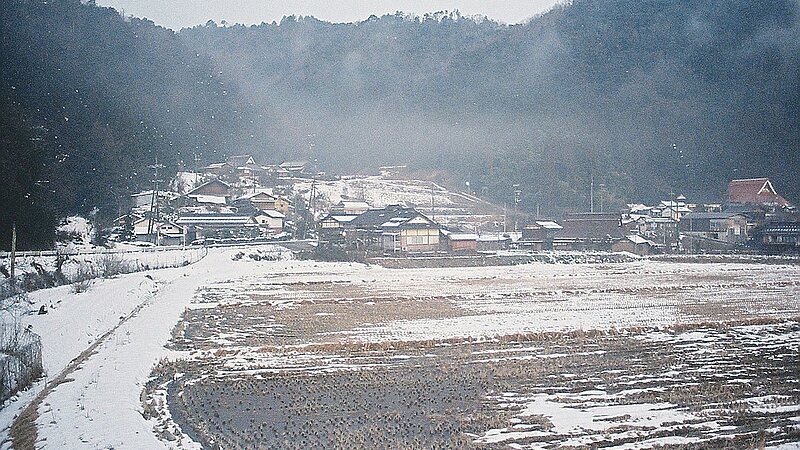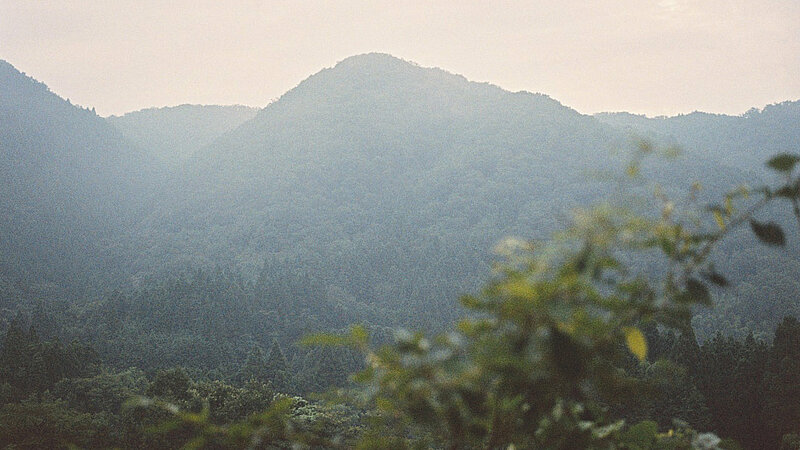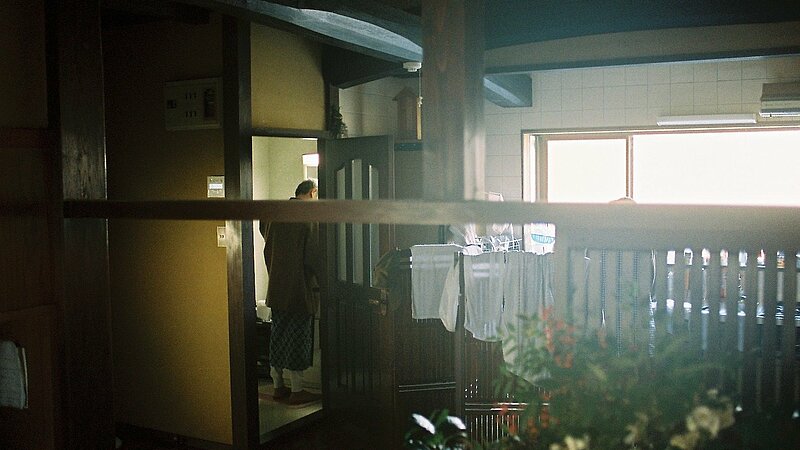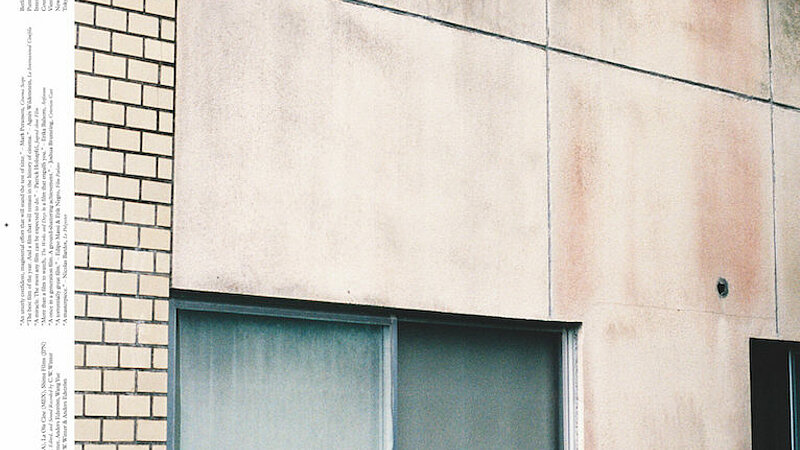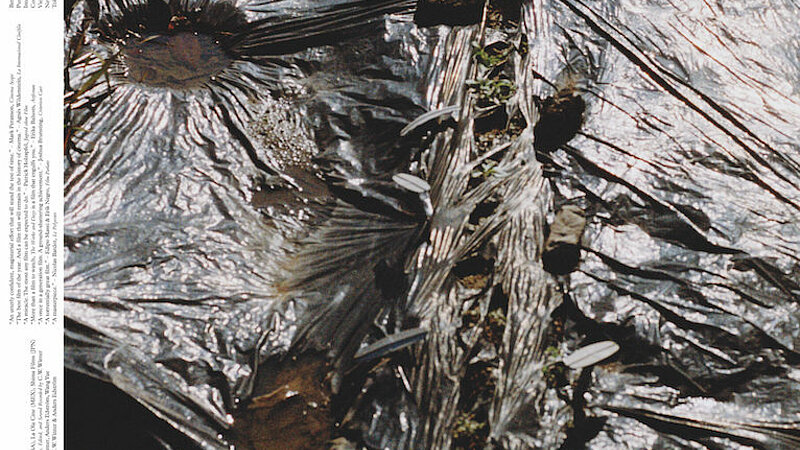The Works and Days (of Tayoko Shiojiri in the Shiotani Basin)
Info
USA/SE/JP/UK-2020, 480 Min. OmeU
Regie C.W. Winter & Anders Edström | Kamera Anders Edström | Drehbuch (Tagebucheinträge von Tayoko Shiojiri) C.W. Winter | Ton und Schnitt C.W. Winter | Mit Tayoko Shiojiri, Hiroharu Shikata, Ryo Kase, Mai Edström, Kaoru Iwahana, Jun Tsunoda, Masahiro Motoki | Produktion General Asst., Anders Edström, Silver Salt Films
Kamera Blackmagic Cinema Camera 2.5
Linse 16mm & 25mm Zeiss Super Speed for Super 16
Tonaufnahmegerät Roland R-88
Mikrophone Sennheiser 416
Schreiben 2010-2016
Produktion 2014-2016
Post-Produktion 2016-2020
Acht Stunden sind ein Jahr. Dieser Film mag lang erscheinen; er belohnt aber die Geduld, die man ihm entgegenbringt, seinerseits mit der Aufmerksamkeit, die er seinem Gegenstand widmet: den Geschehnissen in der Familie der Tayoko Shiojiri, die in einem großen Haus in einem Dorf an einer Durchgangsstraße wohnt, eingebettet in die Berge der Provinz Kyoto. Täuschend kunstlos wird das alltäglich Beiläufige aufgezeichnet – die Arbeit auf dem Feld, die Sorge füreinander, der nachbarschaftliche Umgang – und mit der Zeit als eigentliche Qualität der Existenz ersichtlich. Und im graugrünen Grasbüschel am Wegesrand, gleich neben der schlammigen Pfütze, liegt die wahre Schönheit. (Viennale)
Spieltermine
KINOSTART: 13. Dezember 2021
u.a. im LE STUDIO Film und Bühne, KIZ Royal Kino Graz, Cinematograph Innsbruck, Filmstudio Villach
INNSBRUCK Cinematograph am So. 20.12.2021 um 12 Uhr
WIEN LE STUDIO Film und Bühne, als Abschiedsfilm vor der endgültigen Schließung des Studios am 30.12.2021
Mo. 14. 19h Part I
Di. 15. 19h Part II
Mi. 16. 19h Part I
Do. 17. 20h Part II
Fr. 18. 10h Part I, 14h Part II, 19h Part I
Sa. 19. 18h Part II
So. 20. 19h Part I
Mo. 21. 19h Part II
Di. 22. 19h Part I
Mi. 23. 19h Part II
Do. 25. 11h Part I, 15h Part II, 20h Part I
Fr. 26. 11h Part II, 16h Part I
Sa. 27. 11h Part I, 15h Part II
So. 28. 11h Part II, 16h Part I
Mo. 29. 11h Part I, 15h Part II
Di. 30. 11h Part I, 15h Part II
Pressespiegel
„Ein herausragender Film“ Die Presse
„Ein wunderbarer Film“ Perlentaucher
„Jacques Rivette once wrote that a good film begins with something being wrong. In The Works and Days there is something wrong in almost every shot, something that makes us look more closely, more attentively, until we realize that it’s not the shot that is wrong but the way we normally look at things. Those images do not want anything from us, they ask everything of us.“ Jugend ohne Film (Patrick Holzapfel)
„Mutig und zuversichtlich schenken C.W. Winter und Anders Edström dem Kino dieses Wunderwerk.“ Alexandra Seitz, Ray Filmmagazin
„The film is a life event in and of itself. Its homey environs and lushly photographed natural world induce a heightening of the senses and an attention to lovely subtleties of light, color and fellow feeling.“ The New York Times
„One of the best films of the year. At once intimate and expansive…. More than a film to watch, The Works and Days is an experience that engulfs.“ Artforum (Erika Balsom)
„Wenn ich mir von einem Film verspreche, dass er mir wie eine Insel einen anderen Blick auf die Welt ermöglicht, dann wäre das ein solcher Film.“ Cargo Filmzeitschrift
„Masterful. A monumental vision that earns its runtime.“ The Film Stage
„An utterly confident, magisterial effort that will stand the test of time. The Works and Days is a salute to the possibilities provided by cinema, a celebration of life.“ Cinemascope (Mark Peranson)
„Epic. Uncommonly poignant, even profound. A comprehensive look at a vanishing way of life.“ Artforum (Jordan Cronk)
„Eine der faszinierendsten Seherfahrungen des Kinojahres.“ Filmstarts
„In a thousand variations of penumbra and darkness, The Works and Days is at once a filmed diary, a topographical survey, and the memory work of a village in the process of shrinking. Though all this says little of the hypnotic experience and poetry provided by this work, a film that is as much sonic as visual. Through a tight edit, never contemplative, this film, without programmed responses, sows in our minds a multitude of questions: how do we gaze at a landscape, what do we retain, what makes a story? The answer may lie in a tree whose leaves, filmed against the light of the sky, end up drawing a resting face. Only the imagination counts. And in front of The Works and Days, we can dream.“ Le Monde
„By far the best movie of the year. A tremendous cinematic pleasure. An unforgettable picture and sound screening experience. And a film that will remain in the history of cinema.“ La Internacional Cinéfila (Agnès Wildenstein)
„A once in a generation film…A work that thrives thanks to its profound intimacy…Concluding with one of the truly great final acts in recent memory. The Works and Days is a dense, layered, one of a kind masterpiece…A ground-shattering achievement.“ Criterion Cast
„The Works and Days: present and earthbound, like an old woodpile, alive with termites. The length is necessary, natural, and is the least of what’s registered in viewing. The pleasures are immediate and moment-to-moment: the rhythms that emerge, dissolve, mutate, re-emerge; the plain company of people and the texture of the world, made strange; the film’s rigor and ease both, the freedom of transgressing rules established. The full weight of the experience is latent, blossoming late and with force; as is the narrative, taking shape out of the dirt and, diffusely, following it back down again. The deep, disarming sense of mystery is central, and it’s the reason Winter and Edström hold tight to the fiction (or reenactment) on a roiling canvas of reality. The form exists to bottle lived experience, to make it legible, and transmissible, and to set it roaming inside its parameters. Hence the default orientation of the camera is eye-level, looking down. It’s a transparent viewpoint that grounds vision, making no great secret of the apparatus, instead yielding to what’s being looked at.“ A Note on The Works and Days by Edward McCarry
„The natural and the cyclical. Destiny as the corporeality of myth. Looks and acts. What endures. And a potential future. In this torrential film by C.W. Winter and Anders Edström, all this takes shape slowly, as in a burly and dense novel that delves into the depths and in which, from the particular, blossoms a vision of the universal. We should first start with the title, as it always should be with great films. Works and days, a declination of daily life that finds its essence in the minimal and nearly imperceptible movement of objects and affects. Like a (micro) family cosmology that slowly reveals itself, peacefully, minimally… An anthropological and metaphysical ritual on the flow of things… An act of magical realism where the sounds themselves become a space for evocation and continuous perspectival change… Here then is a formal approach in which existential drama, be it even death, appears only as a necessary and transitory moment, almost absorbed by the surrounding nature… The strength of all this fresco remains a certain suspension, not giving a precise shape to those who live in the novel, a turbid swarm of life that escapes being overly-ordered by thought and writing. It is a unique, poetic phrasing… evoking both a presence of the past and an absence of certain aspects of the present… The visual and associative grammar of this mass of images, which goes beyond the simple meditative experience, essentially starts from a space and allows the stories it contains to flow into existence… Here is the ghost of Ozu as an evocation of generations and identities, in every timid, ostensible, and elegiac hint of a past in false starts. Tayoko reads off-screen, as if by chance, from minimal diaries, so similar in their power to the famous ones of Ozu, with that light and crystalline touch tracing aspects of life almost unseen… Here is the blossoming of life, making relevant what is marginal, with the expression of the smallest moment, even the most casual and inadvertent, and the pure revelation of it all… The manifestation of something that comes from within, the expression of duration, tangible, visual, and practicable in its soundscape. There are confessions and stories in the film that have the fragility of memory and the provocation of epiphany…And it is precisely the editing, which in this film seems the doing of a sublime worker camouflaged in the landscape, creating an amazement of the unexpected, a rewriting that brings us into the temporary presents to which we are constantly called. And finally let’s go back to the extreme, yet very simple, conceptualization of that title. To Hesiod (Ἔργα καὶ Ἡμέραι, Erga kài Hemérai, The Works and Days) and perhaps to Rossellini, to his The Iron Age, to the inevitability of the condition of man forced to work in order to survive, but at the same time an ode to virtue and to open space, to an existence from which is revealed the essence of dignity… In this, every spatial form shows itself in its definitively temporal aspect; a great game that only cinema, and perhaps some great novels, can access.“ FILM PARLATO—La Magnifica Omissione by Edipo Massi & Erik Negro
„This is not the story of a picturesque country setting; it is instead about how Edström and Winter squeeze out the experience of a place: by a litany of images but also by an absence of images, by a richness of sound but also of silence…The film abolishes all relevance of a border between fiction and documentary and makes us live a rare and overwhelming immersion in a particular place, a secret world — but in this world hide a thousand worlds closer than we think. Crowned at the Berlinale in the excellent Encounters section, The Works and Days is a small masterpiece that one imagines as quite unforgettable.“ Le Polyester
„There will be no more monumental film this year than The Works and Days. Its risk-taking, its ingenuity of means, its variety of methods, and its multiplicity of references separate The Works and Days from other duration exercises in cinema…It is undoubtedly one of those rare films to contain, humbly, just about everything of a lifetime.“ Panorama-Cinéma
Biografie
CW Winter Geboren in Newport Beach, Kalifornien. Er studierte am California Institute of the Arts u.a. mit Thom Andersen, James Benning und Allan Sekula und schrieb Texte für Cinema Scope und Moving Image Source, Purple und Too Much. Im Februar 2020 schließt er seine Promotion im Fach Kunstpraxis und -theorie an der Universität Oxford ab. Mit Anders Edström realisiert er bereits 2009 THE ANCHORAGE, für den sie in Locarno mit dem Pardo d’oro Cineasti del presente ausgezeichnet wurden.
Anders Edström ist ein schwedischer Fotograf und Regisseur. Bekannt ist er unter anderem für seine Zusammenarbeit mit dem belgischen Modedesigner Martin Margiela. Seine Fotografien werden in Galerien und Museen wie dem Centre Georges Pompidou oder dem Institute of Contemporary Art in Boston ausgestellt. Als Regisseur hat sich Anders Edström mit den Filme THE ANCHORAGE einen Namen gemacht, der den Goldenen Leoparden bei dem Filmfestival von Locarno gewann und bei der « Los Angeles Film Critics Association » zum besten Experimentalfilm des Jahres 2009 ausgezeichnet wurde. Anders Edström lebt und arbeitet in Stockholm.
Filmographie von CW Winter & Anders Edström
One Plus One 2 (2003)
The Anchorage (2009)
The Works and Days (of Taykoko Shiojiri in the Shiotani Basin) (2020)
Festivals & Preise
Goldener Bär – Bester Film Encounters Berlinale | Grand Prize für Bester Film Punto de Vista | Prix One + One Entrevues Belfort | Bester Filmpreis Black Canvas | Viennale
Material
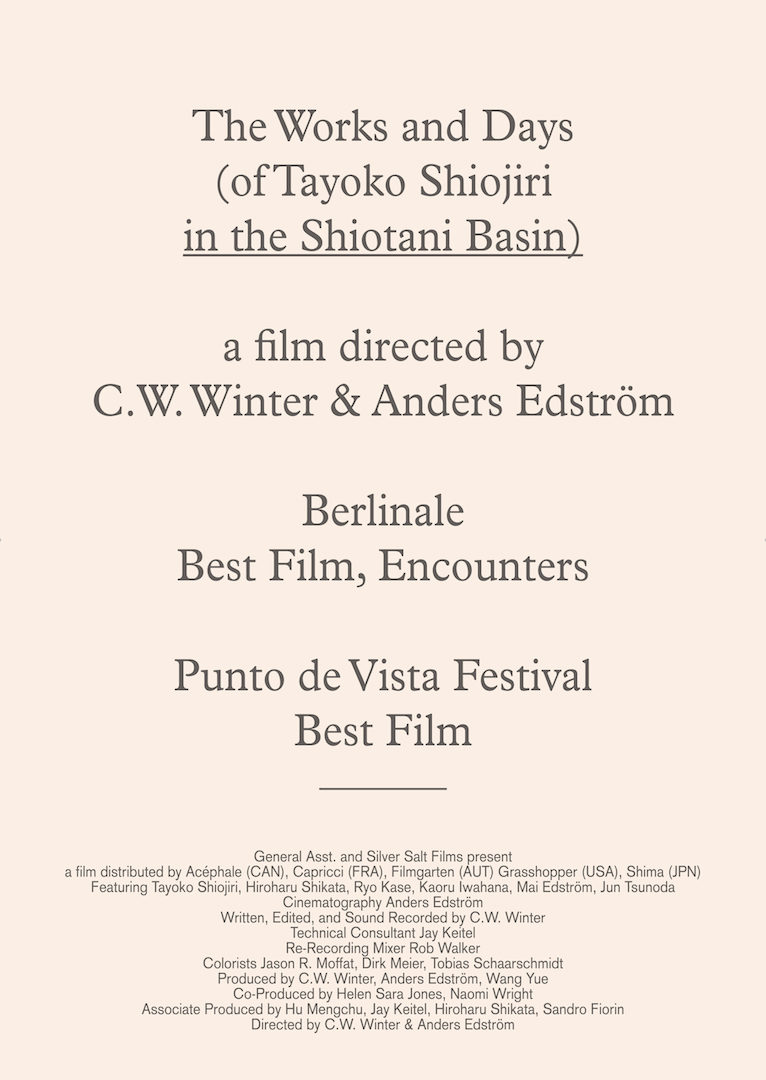
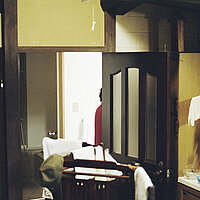
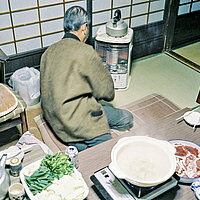
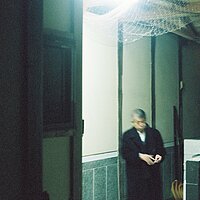
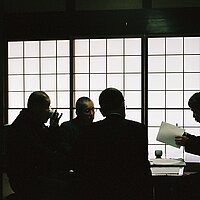
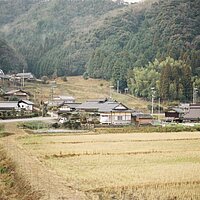
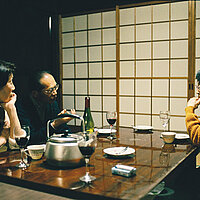
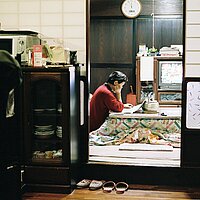
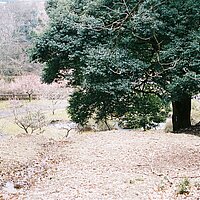
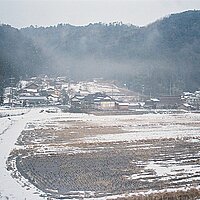
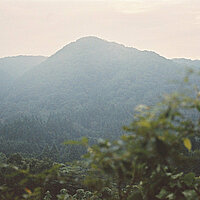
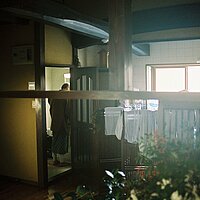
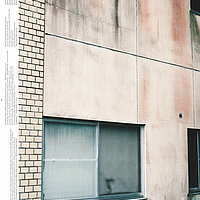
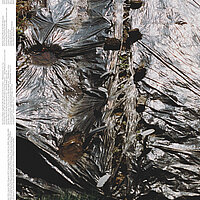
Fotos (6 Mb), Plakat 1, 2 und 3 (jpg)
Trailer Vimeo | youtube | DCP
Interviews
Trying to get the table Jugend ohne Film
Abundance and repetition Cargo
Filming the flow of time and history. A conversation between James Lattimer and CW Winter & Anders Edström – Documenta Madrid
Buch
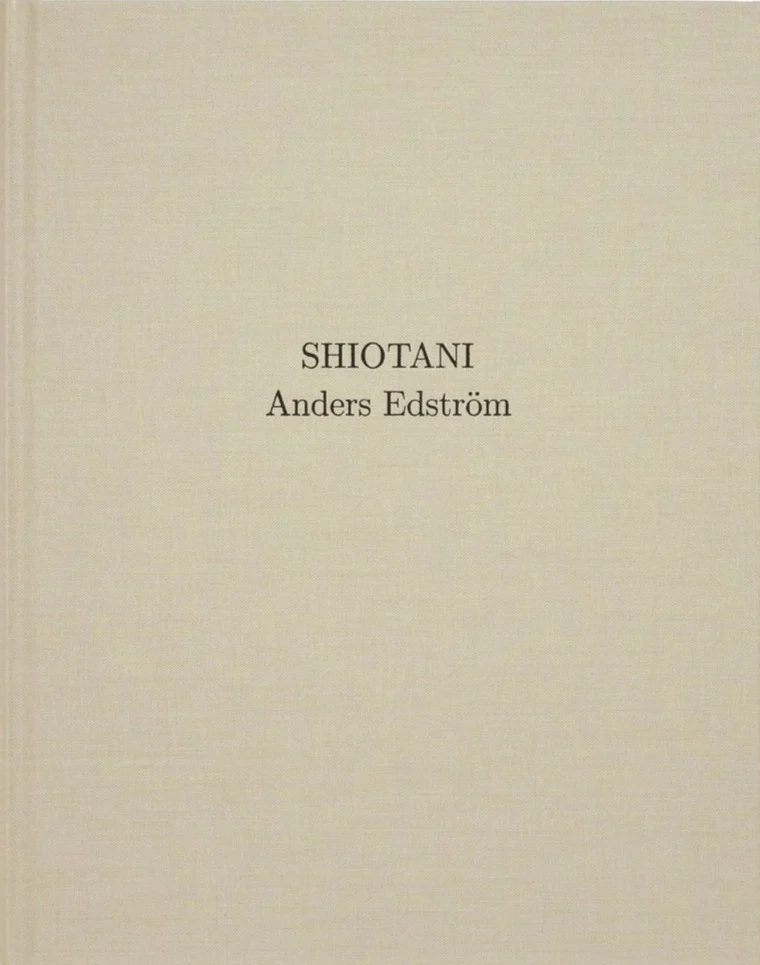
Der Fotoband Shiotani von Anders Edström kann als Begleitprojekt zu The Works and Days (of Tayoko Shiojiri in the Shiotani Basin) betrachtet werden, so inspirierten die Fotografien den Film maßgeblich.
Das Dorf Shiotani, nördlich von Kyoto gelegen, steht sowohl in Film als auch Buch im Zentrum. Edströms genaue Beobachtungen der japanischen Familie seiner Frau sowie des Ortes wurden über einen Zeitraum von 23 Jahren augenommen und sind Dokumentation wie Memoir, Geschichte im doppelten Sinn.
“It’s also not about one picture; the sequence of pictures is so important for me, [and deciding] which ones go together.”
Anders Edström
Mit Texten von Jeff Rian und C.W. Winter.
ISBN 978-9-151984-33-9
756 Seiten
Hartcover
Erscheinungsjahr: 2021
Preis: € 95,00 + Versandkosten (Ö: € 8,00 / EU: € 21,80)
Bestellungen: office@filmgarten.at
